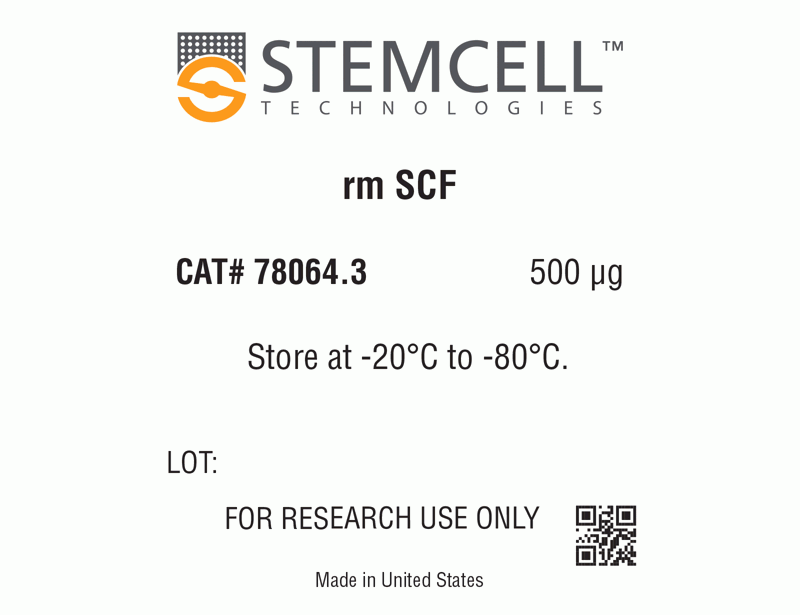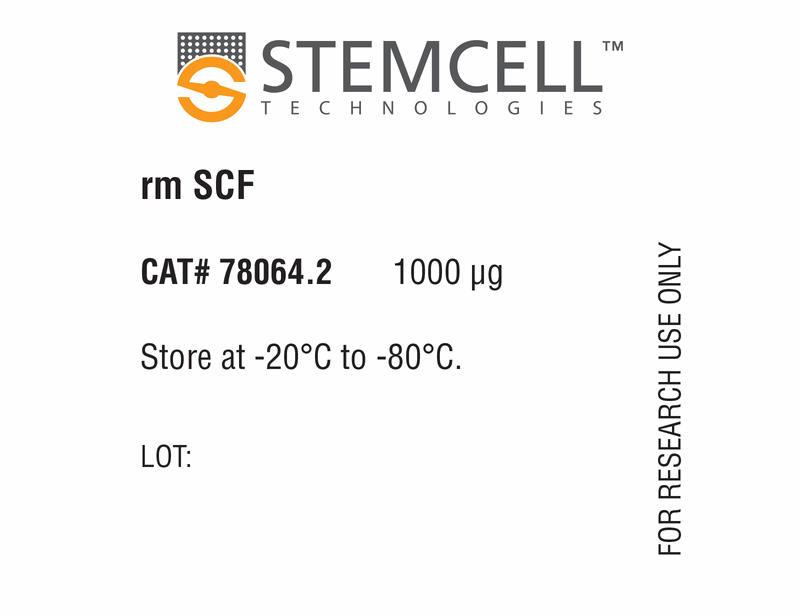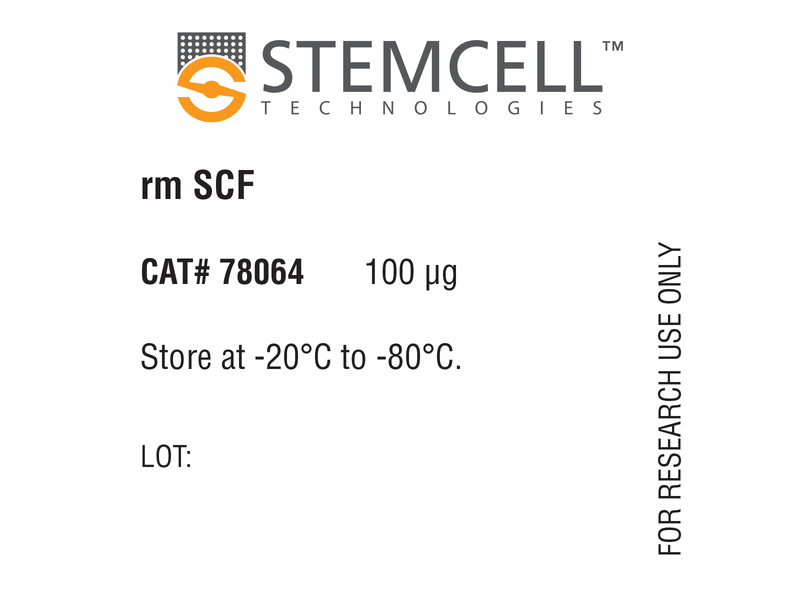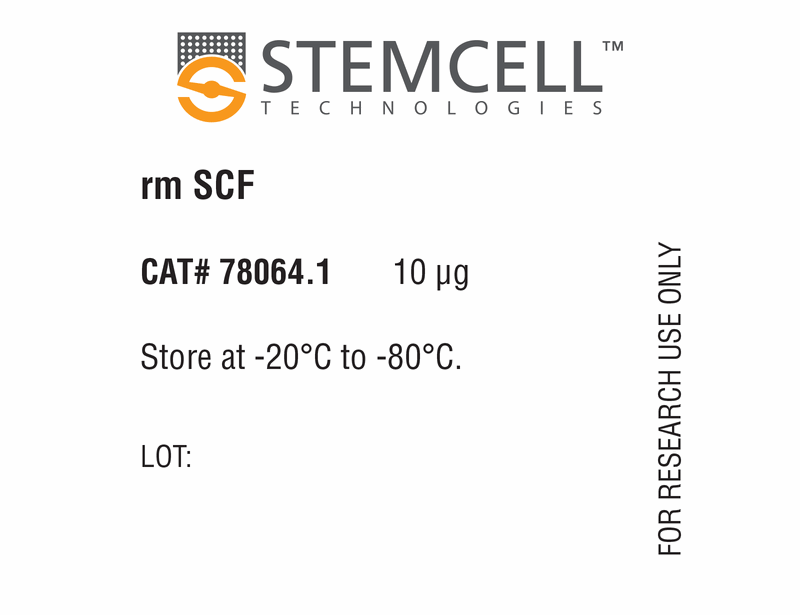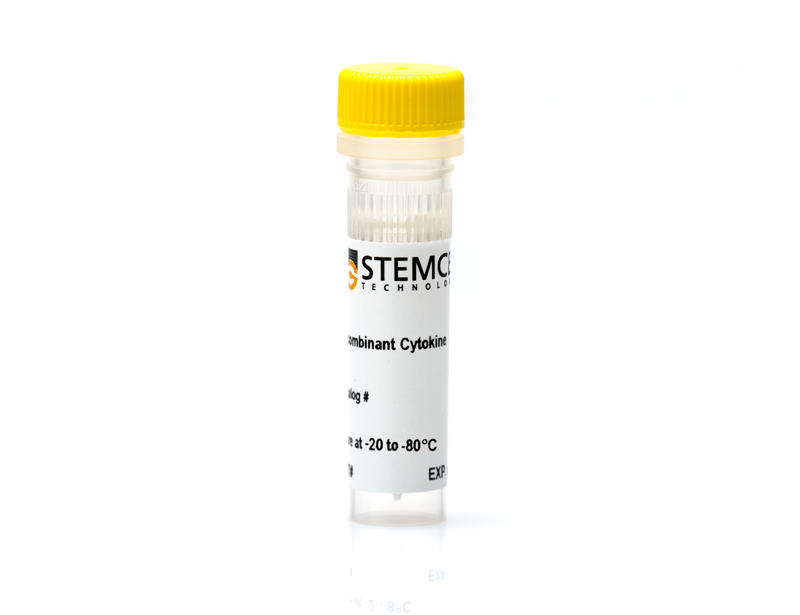Mouse Recombinant SCF
Stem cell factor
概要
Stem cell factor (SCF) is an early-acting cytokine that plays a pivotal role in the regulation of embryonic and adult hematopoiesis. SCF promotes cell survival, proliferation, differentiation, adhesion, and functional activation of cells at multiple levels of the hematopoietic hierarchy. Together with other cytokines such as thrombopoietin and Flt3/Flk-2 Ligand, SCF is commonly used to promote expansion of primitive hematopoietic stem cells and multi-potent progenitor cells in culture (Huang et al.; Kent et al.). In synergy with various growth factors, including IL-2, IL-3, IL-6, IL-7, G-CSF, and erythropoietin, SCF increases proliferation and differentiation of myeloid and erythroid progenitor cells and a subset of lymphoid progenitor cells (Broudy). In the mouse, SCF is essential during fetal gonadal development (Mauduit). It is produced by stromal cells in the fetal liver, bone marrow, and thymus, in the central nervous system, in keratinocytes, and in the gut mucosa, and can function as a chemotactic and chemokinetic factor.
SCF exists in two biologically active splice forms: a soluble and a transmembrane isoform. Upon binding to its receptor (c-Kit tyrosine kinase receptor; CD117), it activates PI3K, JAK/STAT, and MAPK pathways. SCF and signaling from c-Kit has also been reported to play an important role in pigmentation, fertility, vasculogenesis, motility of the gut via c-Kit-positive interstitial cells of Cajal, and in the migration of neuronal stem and progenitor cells to sites of injury in the brain (Lennartsson & Ronnstrand).
SCF exists in two biologically active splice forms: a soluble and a transmembrane isoform. Upon binding to its receptor (c-Kit tyrosine kinase receptor; CD117), it activates PI3K, JAK/STAT, and MAPK pathways. SCF and signaling from c-Kit has also been reported to play an important role in pigmentation, fertility, vasculogenesis, motility of the gut via c-Kit-positive interstitial cells of Cajal, and in the migration of neuronal stem and progenitor cells to sites of injury in the brain (Lennartsson & Ronnstrand).
Subtype
Cytokines
Alternative Names
Kit ligand, Mast cell growth factor, Steel factor, Stem cell factor
Cell Type
Hematopoietic Stem and Progenitor Cells, Mesoderm, PSC-Derived, Pluripotent Stem Cells
Species
Mouse
Area of Interest
Stem Cell Biology
Molecular Weight
18.4 kDa
Purity
≥ 95%
技术资料
| Document Type | 产品名称 | Catalog # | Lot # | 语言 |
|---|---|---|---|---|
| Product Information Sheet 1 | Mouse Recombinant SCF | 78064, 78064.1, 78064.2, 78064.3 | BX27853 or higher | English |
| Product Information Sheet 2 | Mouse Recombinant SCF | 78064, 78064.1, 78064.2, 78064.3 | BX27836 or lower | English |
| Safety Data Sheet | Mouse Recombinant SCF | 78064, 78064.1, 78064.2, 78064.3 | All | English |
数据及文献
Data
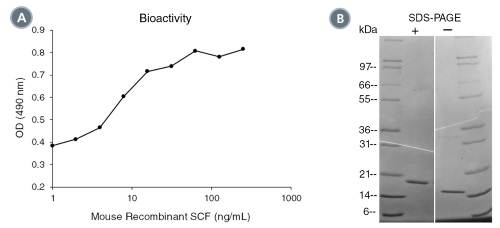
(A) The biological activity of Mouse Recombinant SCF was tested by its ability to promote the proliferation of TF-1 cells. Cell proliferation
was measured after 65 hours of culture using a fluorometric assay method. The EC50 is defined as the effective concentration of the
growth factor at which cell proliferation is at 50% of maximum. The EC50 in the above example is 5.7 - 8.6 ng/mL.
(B) 1 μg of Mouse Recombinant SCF was resolved with SDS-PAGE under reducing (+) and non-reducing (-) conditions and visualized by
Coomassie Blue staining. Mouse Recombinant SCF has a predicted molecular mass of 18.4 kDa.

